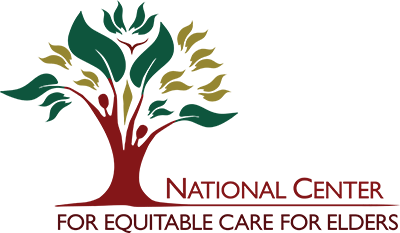About
Research suggests that substance use (illicit drug use, use of alcohol in combination with other substances, or nonmedical use of pharmaceuticals [e.g., prescription medications, OTC remedies]) is an emerging public health issue among our nation's older adults.
NCECE hosted a six-session Learning Collaborative to explore the issues and causes of substance use disorder (SUD) including opioid use, how SUD uniquely affects older adults, and to share innovative practices of SUD screening, referral and case management.
Session Topics and Objectives
The six sessions covered a variety of topics and objectives, including:
Session 1: Overview of Substance Use Disorder (SUD) and Addiction in Older Adults
- Discuss types and rates of SUD/addiction among older adults and older adult health center patients.
- Describe the unique vulnerabilities for older adults with substance use (e.g., role of polypharmaceuticals in unintended opioid misuse).
Session 2: SUD Diagnosis
- Review opioid epidemic in context of older adults.
- Recognize challenges to identifying SUD in older adults.
- Appreciate the role older adults can play in overdose prevention.
- Reflect on how stigma affects identification and treatment of SUD in older adults.
Session 3: SUD Screening & Assessment
- Describe screening instruments for substance use focused on the older adult population.
- Discuss pros and cons of screening instruments in identifying SUD among older adults.
- Discuss non-stigmatizing approaches for SUD screening among older adults.
Session 4: SUD Treatment & Referral
- Review basic facts and definitions around addiction and team-based care.
- Discuss alcohol use disorder and list management strategies.
- Discuss opioid use disorder and list management strategies.
Session 5: Case Management
- Discuss models of case management and/or care for SUD intervention.
- Describe advantages of using a case management model for reducing older adults substance use.
Session 6: SUD Innovative Models & Programs
- Florida’s experience with SBIRT as a “paradigm shift” for addressing the needs of older substance users.
- Examples of “elder friendly” prescreening and screening instruments for determining severity/level of risk.
- Brief Intervention for those at Moderate Risk.
- Referral to Treatment (for Severe Risk).
- Challenges for SBIRT.
- Incarcerated, involuntary populations.
Request Access to Resources
Registered participants: Email us to access materials for each of the sessions.
Interested in accessing materials from this learning collaborative but you're not affiliated with a HRSA-funded health center or look-alike? Contact us with information about your organization and intended use of our materials.
